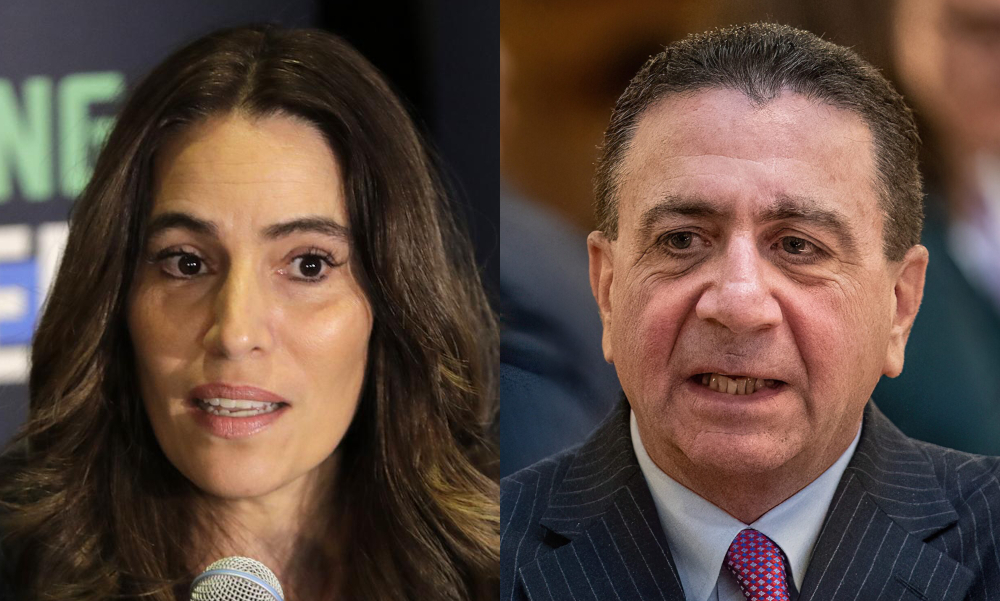A proposed law in New Jersey would essentially wipe out delta-8 THC and other intoxicating hemp substances and restrict the sale of CBD to the state’s licensed pot dispensaries.
Under the bill, an amendment to the New Jersey Hemp Farming Act, the Cannabis Regulatory Commission – the state’s marijuana regulator – would have authority over non-intoxicating CBD as well as any other extract products made from hemp flowers.
The measure would shut down non-licensed hemp shops that sell products in both categories, which have proliferated throughout the state and the country.
Natural derivatives only
Most intoxicating hemp substances are synthetically produced by putting hemp-derived CBD through a process in the lab to boost the psychoactive effects of compounds present in hemp but only in trace amounts. The amendment would eliminate products containing those substances by entirely banning hemp compounds that are “not derived from naturally occurring biologically active chemical constituents.”
While one provision in the amendment would require sellers of hemp-derived intoxicants to be licensed, such licensing would be a moot point under those processing restrictions. The Attorney General would enforce the law against sale of any illicit hemp substances while the state Department of Agriculture would continue regulating hemp growing.
The bill, recently passed out of the State Senate’s Judiciary Committee by a 6–2 vote, would also set the limit for maximum THC in hemp products at a highly restrictive 0.5 milligrams per serving.
Bathtub weed
New Jersey State Sen. Declan O’Scanlon introduced a bill to regulate the psychoactive hemp compounds more than a year ago, dubbing them “the bathtub gin of the cannabis space” and warning many such products are not safe. The most recent legislation was brought forth by Sens. M. Teresa Ruiz and Paul D. Moriarty, both Democrats.
The wide availability of the illicit hemp-based synthetic intoxicants – sold as an alternative to marijuana – has been blamed for weakness in New Jersey’s adult-use pot market and the loss of millions of dollars in state tax revenue. In a report last year, the state’s Cannabis Trade Association said the recreational market is in a “doom loop” due to a gap in the regulatory regime that allows the hemp-derived products to be widely available in convenience stores, hemp shops and other common retail outlets.
New Jersey nonetheless recently licensed its 100th marijuana dispensary, and legal sales are expected to top $1 billion in 2024, the state said earlier this year.
Widespread battle
States throughout the U.S. are working on getting their arms around the runaway market for intoxicating hemp products – referred to variously as “diet weed,” “marijuana light,” or “gas station pot” – which are sold in convenience stores, bodegas, hemp shops and other retail outlets in the form of gummies and other edibles. In addition to delta-8 THC – the most popular of the intoxicating hemp compounds – others include delta-10 THC, THC-O-acetate, HHC and THCP.
The U.S. Food & Drug Administration (FDA) has repeatedly warned consumers about hemp-derived intoxicants, noting that the unregulated and often unsafe products may contain harmful chemicals, and therefore should be kept away from children and pets. The FDA has also warned producers that the products are not categorized under GRAS (generally recognized as safe) guidelines and that any food containing the compounds is therefore also adulterated.
The 2018 U.S. Farm Bill legalized industrial hemp as “any part of that plant, including the seeds thereof and all derivatives, extracts, cannabinoids, isomers, acids, salts, and salts of isomers,” with no more than a 0.3% THC content. But the legislation did not anticipate the emergence of the synthetic intoxicants, most of which are based on CBD extracted from the hemp plant’s flowers.
Federal rules likely
After the market for over-the-counter CBD extract health aids boomed and then busted beginning in 2019, companies left holding backlog CBD stocks started selling them to the dodgy producers of the psychoactive compounds, which quickly spread into what’s estimated as a multi-billion dollar subsector across the U.S.
Congress has a chance to clarify the legality of intoxicating hemp products by amending the next U.S. Farm Bill, delayed from last year. Proposed new provisions floated last week would close the federal loophole that legalized the substances, but a new Farm Bill likely will not emerge until 2025. In the meantime that leaves states to protect consumers from the unregulated products.

